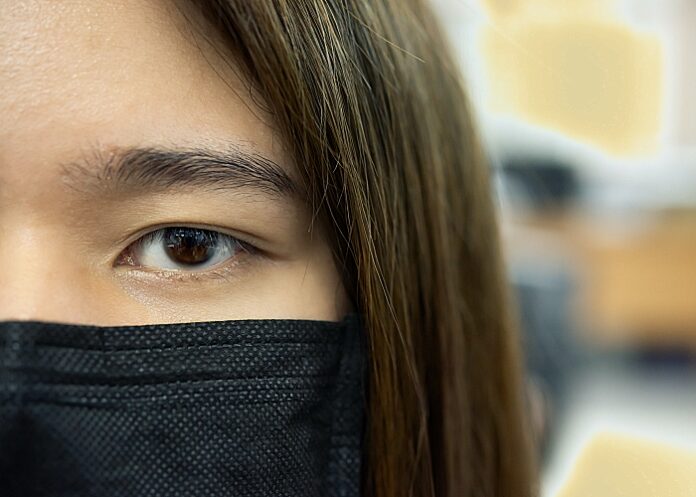A study of the impact of national face mask laws on COVID-19 mortality in 44 countries with a combined population of nearly a billion people found that over time, the increase in COVID-19 related deaths was significantly slower in countries that imposed mask laws compared with countries that did not.
The study, appearing in the American Journal of Preventive Medicine, published by Elsevier, shows that masks provide a supplementary layer of protection that could prevent unnecessary COVID-19 deaths.
”While several studies before this have looked at the impact of masks on COVID-19 cases, fewer were focused on whether mask-wearing may reduce COVID-19 deaths, and no study had looked at the data across multiple countries,” said lead investigator Dr Sahar Motallebi from Malmo, Sweden. “The large sample of culturally diverse countries in this retrospective study covers a large population, giving us more evidence towards the lifesaving potential of masks during the pandemic.”
The top 50 countries according to the United Nations Development Programme Human Development Index, which measures life expectancy, education, and standard of living, were targeted because of comparability and reduced chance of selection bias. Four countries in the Southern Hemisphere (New Zealand, Australia, Chile, and Argentina) were excluded to avoid potential seasonality characteristics.
The United States and Canada were excluded because public health policies are made at the state/province level and a unified national policy does not exist. Data from the remaining 44 countries were used to model COVID-19 mortality.
Twenty-seven countries with mask policies and 17 countries without mask policies, covering a combined population of nearly 1bn people, were included in the study.
Investigators looked at COVID-19 deaths between 15 February 2020, the date of the first confirmed death in the targeted countries, to 31 May 2020, when many countries began to lift gathering and movement restrictions. Ten relevant demographic, social, clinical and time-dependent factors were examined. Potential confounders between face mask policy and mortality reduction, such as non-pharmaceutical interventions, were identified.
The 44 countries studied reported 2,167,664 confirmed deaths, 1,253,757 in countries without face mask mandates and 913,907 in countries with face mask mandates. The average COVID-19 mortality per million population was 48,40 in countries with mask policies and 288,54 in countries without face mask policies, and this was significantly greater compared with countries with mask mandates. Masking countries had significantly lower average daily increase in deaths compared with no-face mask countries.
Surprisingly, the countries with no mask mandate started with a lower COVID-19 daily mortality. However, the death rate accelerated so fast in those countries that they not only caught up with the death rate in mask law countries, but also significantly surpassed them over time.
“To reach its full potential of saving lives, public health research should be practical and pragmatic,” said Motallebi. “Our primary objective was to assess lessons learned from the pandemic, to better prepare for future potential epidemics of airborne diseases, before pharmaceutical interventions are available.”
As delays in vaccination continue to challenge heath systems across the globe, the study adds evidence that before, and even after, full vaccination of the population, face masks continue to be a preventive measure against COVID-19.
“Across variants, vaccines may reduce mortality but not necessarily morbidity, and masks continue to protect against both. So, we don’t have to choose between these two good policies of vaccination and masks or substitute one for the other when we can and must do both in parallel,” Motallebi concluded.
Study details
Modeling COVID-19 Mortality Across 44 Countries: Face Covering May Reduce Deaths
Sahar Motallebi, Rex C.Y. Cheung, Babak Mohit, Shahram Shahabi, Amir Alishahi Tabriz, Banafsheh Sadeghi, Syamak Moattari.
Published in the American Journal of Preventive Medicine on 10 November 2021
Introduction
Despite ongoing efforts to vaccinate communities against coronavirus disease 2019 (COVID-19), the necessity of face mask use in controlling the pandemic remains subject to debate. Several studies have investigated face masks and COVID-19, covering smaller and less diverse populations than this study's sample. This study examines a hypothesised association of face covering mandates with COVID-19 mortality decline across 44 countries on two continents.
Methods
In a retrospective cohort study, changes in COVID-19-related daily mortality rate per million population from February 15 to May 31, 2020 were compared between 27 countries with and 17 countries without face mask mandates in nearly 1 billion (911,446,220 total) people. Longitudinal mixed effect modeling was applied and adjusted for over 10 relevant demographic, social, clinical, and time dependent confounders.
Results
Average COVID-19 mortality per million was 288.54 in countries without face mask policies and 48.40 in countries with face mask policies. In no mask countries, adjusted average daily increase was 0.1553 – 0.0017 × (days since first case) log deaths per million, compared with 0.0900 – 0.0009 × (days since first case) log deaths per million in the countries with a mandate. Sixty days into the pandemic, countries without face mask mandates had an average daily increase of 0.0533 deaths per million, compared with the average daily increase of countries with face mask mandates, at 0.0360 deaths per million.
Conclusions
This study's significant results show that face mask mandates were associated with lower COVID-19 deaths rates compared with countries without mandates. These findings support use of face masks to prevent excess COVID-19 deaths, and should be advised during airborne disease epidemics.
See more from MedicalBrief archives:
Mask-wearing significantly reduces COVID-19 incidence — Systematic review
Most blue surgical masks ineffective against COVID-19 — Canada study
New CDC guideline admits that COVID-19 transmission is airborne
ECDC report: Face mask effectiveness in reducing COVID-19 transmission

